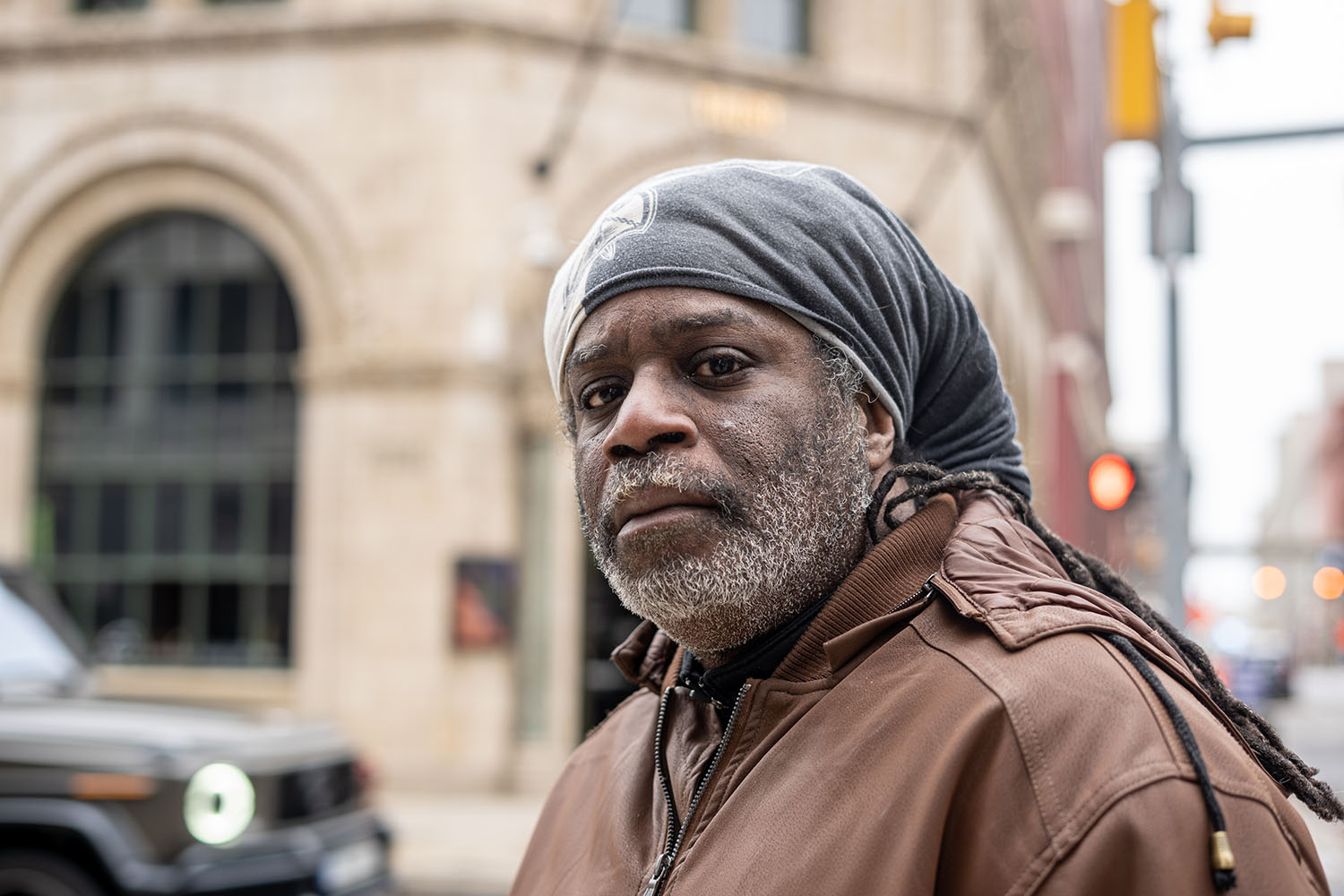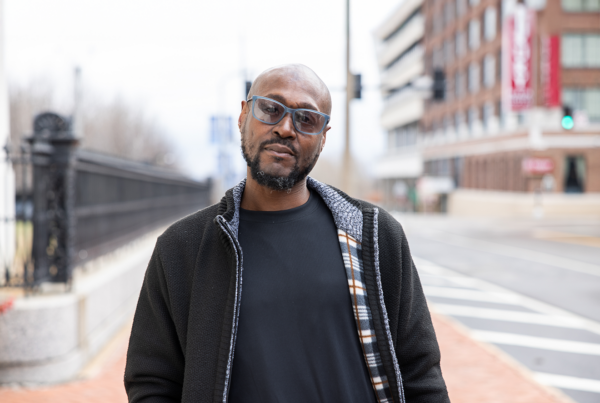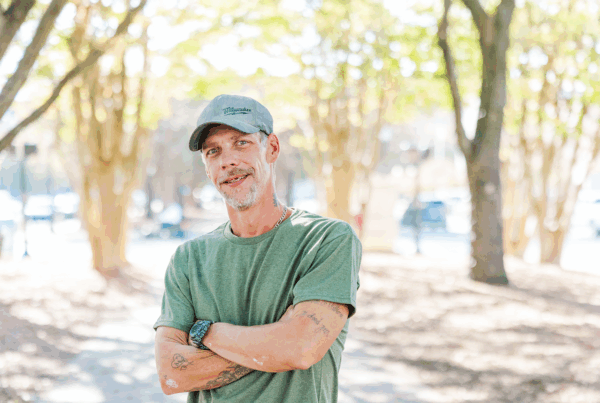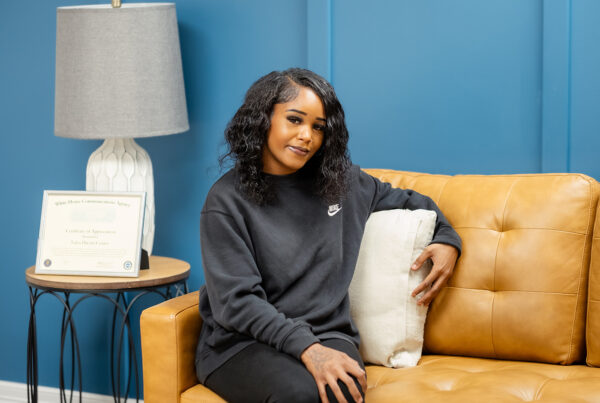Floyd, a 51-year-old veteran from Detroit, has dealt with his fair share of uncertainty. In 1993, when he was a young soldier who just joined the Army, he was deployed to Somalia. It was shortly after the deadly Battle of Mogadishu, also known as the Black Hawk Down incident. Tensions were high and his convoy was met with angry protesters. Later, he built refugee camps in Panama for Haitian refugees while riots raged nearby. In 2001, shortly after the 9/11 terrorist attacks, he helped fortify military facilities in Hawaii. With such extensive global experience in highly volatile situations, there wouldn’t ever be a situation that he couldn’t handle alone, Floyd thought. Little did he know that a short brush with the U.S. pretrial justice system would permanently change all that he had come to know.
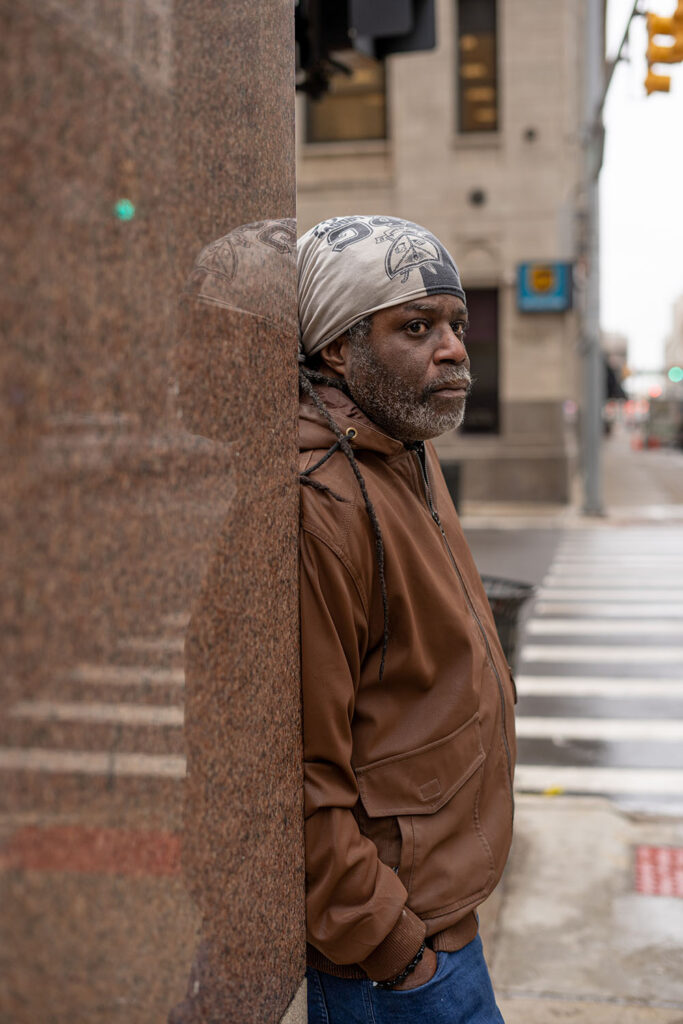
In March 2019, Floyd heard someone knocking on his door. He opened it and was surprised to find the police. They were there to arrest him. Floyd had been charged with assault. He was taken to jail and the judge set his bail at $350. Unable to afford that amount, he thought he would be stuck behind bars until his trial. Life as he knew it had suddenly come to a halt. There was little he could do. He knew he was innocent, but with no other solution in sight, he feared what the outcome would be.
As he sat behind bars, Floyd dwelled on the events that led to his arrest. Weeks earlier, he had been assaulted by an acquaintance. During the altercation, Floyd pushed her away in self-defense. He made his way to a phone to call 911, but she then fled. When she left, he didn’t bother calling the police. No one was hurt and it was over, he thought. It was only after his arrest that he found out she had gone to the police and accused him of being the assaulter. He imagined that her testimony would even make his service to his country look bad. He said he feared she would say something like “this big mean veteran laid his hands on her.”
Currently, there is no reliable data on the number of justice-involved veterans. The latest data available from the U.S. Department of Justice is from 2015. That study found that more than 181,000 veterans are incarcerated in jails and prisons across the country. Based on what little available information is out there, what researchers do know is that veterans have historically been overrepresented in America’s jail and prison populations. Research often points to post-traumatic stress disorder and the lack of accessible health care as factors that may cause veterans to become involved in the justice system. What’s often missing from the conversation, however, are the socio-economic factors – such as poverty or mental health conditions like post-traumatic stress disorder – that make veterans a vulnerable group. Research from 2012 shows the prevalence of post-traumatic stress disorder ranges from 27% to 40% among justice-involved veterans, compared to 11% of nonveterans. Without more up-to-date information, it’s difficult to understand how these unique challenges manifest in their lives. This poses a challenge to policymakers tasked with identifying preventative interventions and solutions.
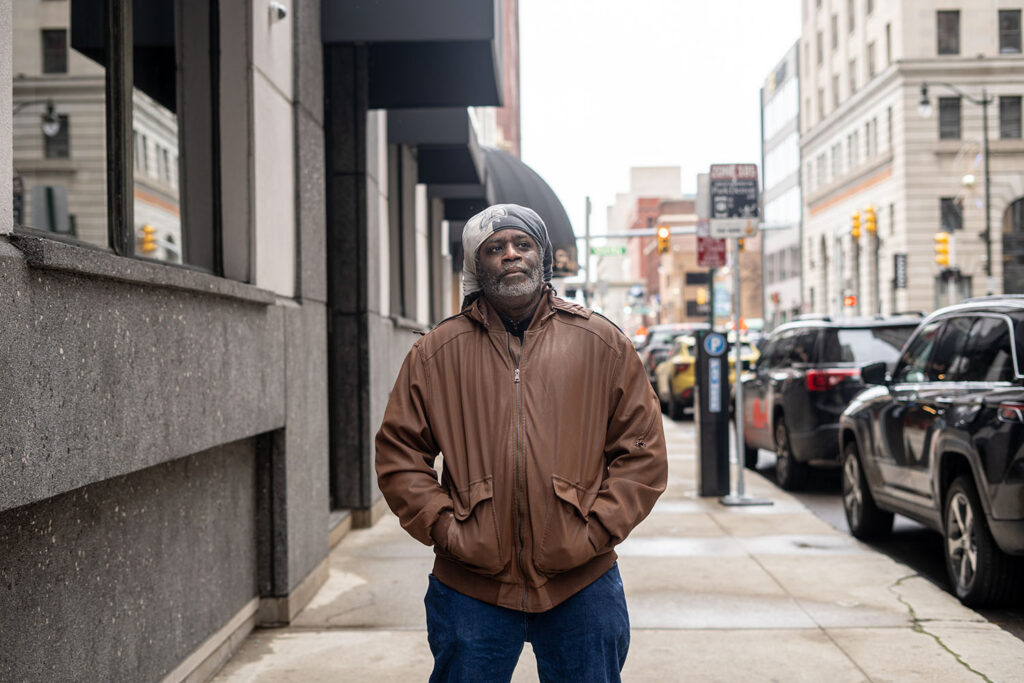
Floyd initially joined the Army for mostly practical reasons. The economy wasn’t great, and he thought it would be a good job. It seemed like a smart option. And any initial hesitations evaporated while he was in the service.
“I liked being a soldier,” he said. “It’s just hard to describe because there are so many different facets of it.”
Floyd’s older brother served during Operation Desert Shield and Desert Storm. His younger brother served in Afghanistan and Iraq. But while Floyd’s decade of service was between those larger conflicts, he still encountered tense situations. He remembers one incident in Somalia where he was the rear guard on a convoy. Everyone was on edge because there had been harassment of convoys in the area. The convoy arrived at a checkpoint. As the first vehicle stopped to check in, it forced all the vehicles behind it to stop as well. He was on the back of the last vehicle. A large, angry crowd began gathering right behind him. Looking back on it, it’s scary, he said. “But truth be told, I don’t ever remember being scared. I did what I was trained to do. Because one thing they drilled into us was to follow your training.”
Floyd had many other memorable moments in the Army. During his 10 years in service, Floyd was deployed to five countries across three continents. His work in the army brought him close to disaster zones and high-stakes global conflicts. Along with his service in Somalia, Panama, and Hawaii, in 1999, he helped with clean-up efforts after Hurricane Floyd. Later, during the Japanese hostage crisis in Peru, his unit quickly assembled a replica of the Japanese embassy there so special forces units could practice a rescue attempt.
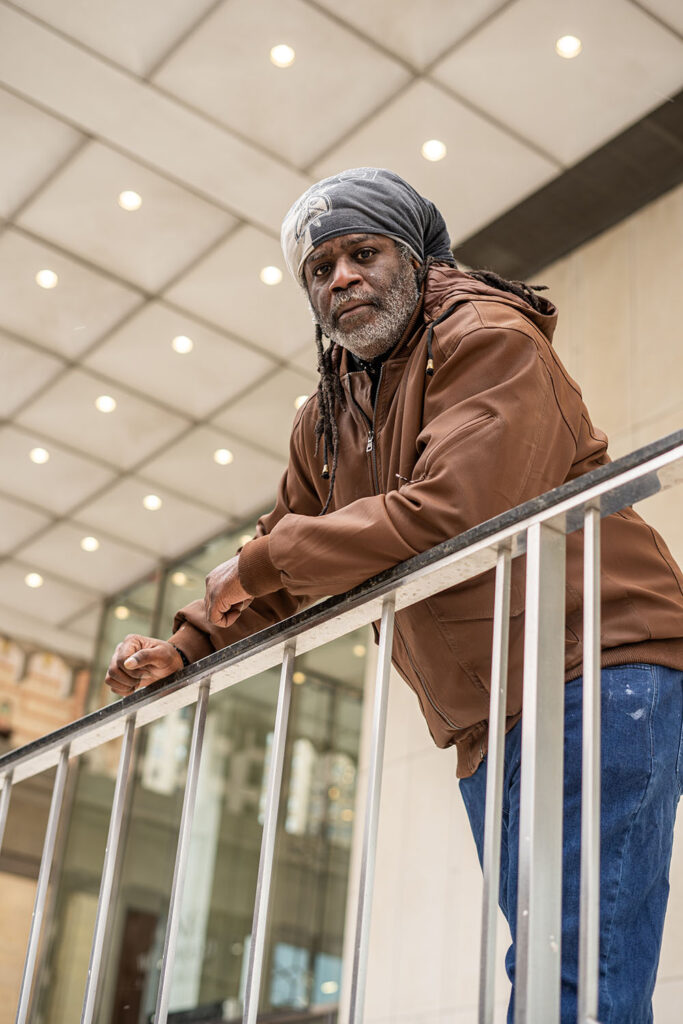
When Floyd left service in 2002, he returned to his hometown of Detroit and enrolled in college. At the time, he thought he transitioned easily to civilian life, but in retrospect, he sees that he was struggling more than he realized. He had difficulty finishing one class – the last one he needed to graduate – so much that he had to take it multiple times. His financial aid ran out and he wasn’t able to finish his degree. He began to wonder if he was dyslexic or had some other learning disability, but a friend suggested he might be depressed.
He looked up the symptoms of depression and was surprised to realize that he had 8 of the 12 listed symptoms. Even more surprising to him, he realized he had been having those symptoms for years. He thinks some of the discipline and structure of military life – as well as the soldier’s mindset of pushing through hardship – had helped him mask his depression even from himself. He called the Veterans Association and was assigned a therapist and he began taking Prozac. He is now on disability for depression and asthma.
When Floyd recalls the day of his arrest and the subsequent months that followed, he still feels taken aback. “The whole situation, it just should have never happened,” he said. After spending two weeks in jail, The Bail Project paid his bond and Floyd was released. A few weeks later, Floyd was found not guilty at a bench trial. He said a critical piece of evidence was the initial police report, in which the police officer recorded that she said she struck him first, meaning he was acting in self-defense. Still, he served two weeks for something he didn’t do – and he would have served closer to two months if The Bail Project hadn’t bailed him out.
He said the relief he felt when the verdict came in was indescribable.
“I walked out of the courthouse alone,” he said, and it was a marvelous feeling. “I appreciate The Bail Project,” he said, because without the organization, “I would have lost like literally two months of my life.”
Thank you for reading. The Bail Project is a 501(c)(3) nonprofit organization that is only able to provide direct services and sustain systems change work through donations from people like you. If you found value in this article, please consider supporting our work today.







